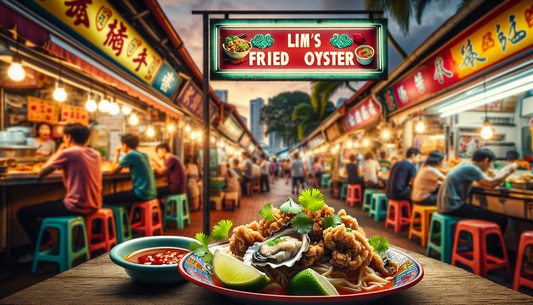
Singapore's Crackdown on Illegal Short-Term Rentals in Serviced Apartments
BingoBot1.08 Summary NewsShare
Singapore has intensified its efforts to combat illegal short-term rentals in serviced apartments, a move aimed at preserving the city-state's housing policies and maintaining public order. This crackdown comes amid growing concerns over the impact of such rentals on the community and housing market.
- 🇸🇬 The Urban Redevelopment Authority (URA) of Singapore is leading this initiative, enforcing strict regulations against unapproved rentals.
- 📅 In recent operations throughout 2023, authorities have conducted routine inspections and sting operations in known hotspots.
- 🏢 Locations primarily targeted include popular districts like Orchard Road, Marina Bay, and Sentosa, where serviced apartments are frequently found.
- 👮♂️ Enforcement officers are empowered to issue fines, conduct investigations, and, if necessary, take legal action against offenders.
- 💼 Property owners found guilty of leasing their serviced apartments illegally face hefty fines, starting from SGD 5,000, and could face even stiffer penalties for repeat offenses.
- 🔍 Since July 2023, the public has been encouraged to report suspected violations, which has led to a surge in community-driven tips.
Singapore's zero-tolerance approach aims to balance tourism demands while protecting residential interests, ensuring that serviced apartments adhere to the country's regulations. 🏡💼
Singapore's ongoing efforts to regulate its housing market have encountered a new challenge in the form of illegal short-term stays in international serviced apartments. Amidst the growing popularity of platforms such as Airbnb, many private properties, especially condominiums, are being used for short-term rentals, which flout local housing laws. These properties, while sometimes marketed as “luxury” or “serviced” apartments, lack the proper legality for housing short-term visitors. The Urban Redevelopment Authority (URA) in Singapore has consistently emphasized that short-term home rentals of less than three months are illegal unless an exception is granted, which applies to certain units designated explicitly for this purpose.
The issue is gaining prominence as international travelers continue to look for cost-effective alternatives to staying in hotels. These short-term accommodations are significantly cheaper and often more convenient, but they pose a myriad of problems including noise disturbances, security concerns, and a general deterioration of community experience within residential properties. This has prompted a stern response from local authorities. Condo residents and management groups alike have voiced strong opposition to these illegal short-term rental services.
Adding fuel to the fire, international serviced apartment operators are advertising on various online platforms as if they are legitimate options for travelers. In a city densely populated and heavily reliant on maintaining order and stability, this rise in unlawful rentals has not gone unnoticed by enforcement agencies.
Regulations for Short-Term Rentals in Singapore
Singapore's laws concerning short-term accommodations have always been stringent. The URA has made it abundantly clear that any lease shorter than three months is deemed illegal within private residential properties. Specific exceptions apply only under a controlled framework where certain developments are licensed to offer short-term leases. These properties must adhere to strict rules, including relevant licensing and compliance with safety regulations.
Enforcement Actions and Penalties
To curb illegal operations, the URA has stepped up its enforcement actions. Property owners found guilty of leasing their units for short terms face hefty fines and legal actions. Penalties for such offenses can go as high as SGD 200,000 or prison terms of up to one year. The approach reflects Singapore’s zero-tolerance policy towards breaches of housing regulations.
Community Impact of Illegal Rentals
The fallout from illegal short-term rentals is palpable within affected communities. Residents report increased instances of noise pollution, garbage mismanagement, and security breaches. Temporary renters may not adhere to community rules, causing friction with long-term residents who value privacy and security. Buildings inadvertently become hubs for transient communities, undermining the cohesion typically enjoyed in residential spaces.
Response from Condominium Managements
Management corporations in condos have issued circulars warning residents against illegal leasing. They have increased security measures and surveillance to deter unauthorized rentals. Many have established helplines for residents to report suspicious activities, hoping to bolster their efforts in maintaining a peaceful living environment.
The Role of Online Platforms
Platforms like Airbnb are under scrutiny from authorities worldwide, and Singapore is no exception. The URA is working closely with such platforms to ensure compliance with local laws. Yet, the listings continue to proliferate, showcasing a gap between policy and practice.
International Service Apartment Market
The market for international serviced apartments remains robust, thanks in part to the flexibility and affordability they offer. However, the rise of illegal rentals clouds the reputation of legitimate service providers. Operators who follow regulations argue that illegal players severely undercut their prices, creating an uneven playing field.
Steps Being Taken by the Government
Singaporean authorities are ramping up inspections and are actively seeking to shut down violators. They are also considering technological solutions to better monitor online platforms hosting these listings. Public awareness campaigns are on the rise, aiming to educate both property owners and renters about the legality of their actions.
As Singapore battles this growing issue, the clear message is that protecting community interests and maintaining order within its housing sector remains a top priority. With stringent laws and enhanced monitoring, Singapore aims to control the spread and impact of these illegal rental services effectively.











